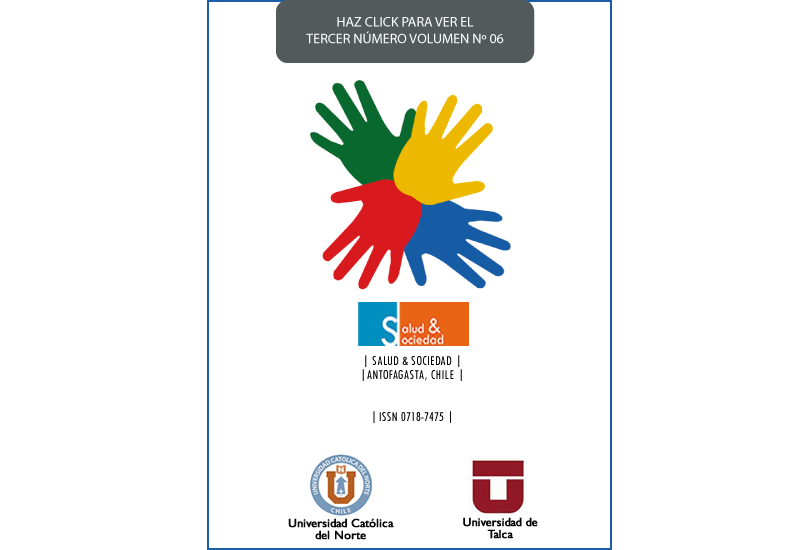Apego romántico y optimismo en adultos chilenos
DOI:
https://doi.org/10.22199/S07187475.2015.0003.00003Palabras clave:
Apego, ansiedad ante el abandono, evitación de la cercanía, optimismo, Attachment, abandonment anxiety, avoidance of closeness, optimism,Resumen
Objetivo: Evaluar en qué medida las dimensiones del apego romántico predicen el optimismo. Método: Mediante un diseño no experimental de tipo transversal, se evaluó un total de 734 adultos, con edades fluctuantes entre los 18 y 60 años, provenientes de diferentes ciudades de Chile, quienes completaron el Experiencias en Relaciones Cercanas Versión y el Test de Orientación Vital. Resultados: Mayores niveles de ansiedad ante el abandono y de evitación de la cercanía, en el contexto de las relaciones amorosas, se asocian a menor nivel de optimismo. Conclusión: Se discute acerca de las implicancias clínicas de estos hallazgos, entregando información valiosa y novedosa que permite comprender las dinámicas que surgen en las relaciones de pareja y sus efectos, aplicadas a aspectos del funcionamiento psicológico más general.
Objective: To assess to what extend adult romantic attachment predict optimism. Method: This study follows a non-experimental, transversal design. The Experiences in Close Relationships test and the Life Orientation Test – Revised (LOT-R) were applied to 734 adults, with ages ranging between 18 and 60, from different cities in Chile. Results: Higher levels of anxiety due to abandonment and avoidance of closeness are related to lower levels of optimism. Conclusion: A discussion on the implications of these results has helped us understand the dynamics of romantic relationships and its effects under the view of the most general psychological functioning.
Descargas
Referencias
Brennan, K. A. & Shaver, P. R. (1995). Dimensions of adult attachment, affect regulation and romantic relationship functioning. Personality and Social Psychology Bulletin, 21, 267-283. doi: 10.1177/0146167295213008
Brennan, K. A., Clark, C. L., & Shaver, P. R. (1998). Self-report measurement of adult attachment: An integrative overview. In J. A. Simpson y W. S. Rholes (Eds.), Attachment Theory and close relationships, 46-76. New York: Guilford Press.
Boo, J. (2010). The relationship between adult attachment and depression as mediated by social support, selfesteem, and optimism. (Tesis doctoral). Ball State University. Muncie, Indiana.
Bowlby, J. (1969). Attachment and loss: Vol. I. Attachment. New York: Basic Books.
Bowlby, J. (1979) The making and Breaking of Affectional bonds. London: Travistock.
Bowlby, J. (1980). Attachment and loss: Vol. 3. Loss. New York: Basic Books.
Carver, S. & Scheier, M. (Eds). (2002). Handbook of Positive Psychology, 231- 243. New York: Oxford University Press.
Chico, E. (2002). Optimismo disposicional como predictor de estrategias de afrontamiento. Psicothema, 14, 544-550.
Feeney, J. (1999). Attachment, caregiving, and marital satisfaction. Personal Relationships, 3, 401-416. doi: 10.1111/j.1475-6811.1996.tb00124.x
Feeney, J. & Noller, P. (1990). Attachment Style as a predictor of adult romantic relationships. Journal of Personality and Social Psychology, 28 (2), 281- 291.
Garrido-Rojas, L. (2006). Apego, emoción y regulación emocional. Implicaciones para la salud. Revista Latinoamericana de Psicología, 38, 493-507.
Geers, A. L. & Neef, L.A. (2013) Optimistic Expectations in Early Marriage: A Resource or Vulnerability for Adaptive Relationship Functioning? Journal of Personality and Social Psychology, 105, 38-60. doi: 10.1037/a0032600.
Guzmán, M. & Contreras, P. (2012). Estilos de Apego en Relaciones de Pareja y su Asociación con la Satisfacción Marital. Psykhe, 21, 69-82. doi: 10.4067/S0718-22282012000100005
Hazan, C. & Shaver, P. (1987). Romantic love conceptualized as an attachment process. Journal of Personality and Social Psychology, 52, 511-524. doi:10.1037/0022-3514.52.3.511
Heinonen, K., Räikkönen, K., KeltikangasJarvinen, L. & Strandberg, T. (2004). Adult Attachment Dimensions and Recollections of Childhood Family Context: Associations with Dispositional Optimism and Pessimism. European Journal of Personality, 18, 193–207. doi: 10.1002/per.508
Hendrick, C., Hendrick S. & Adler, N. (1988). Romantic relationships: Love, satisfaction, and staying together. Journal of Personality and Social Psychology, 54, 980-988.
Hernangóme, L. (2002). Variables de influencia temprana en la génesis del optimismo. Psicopatología y Psicología Clínica. 7, 227-242.
Isanejad, O., Ahmadi, S., Bahrami, F., Baghban-Cichani, I., Etemadi, O. & Farajzadegan, Z. (2011). Study of Effectiveness of Relationship Enhancement on Marital Happiness and Optimism in Iranian Couples. Australian Journal of Basic and Applied Sciences, 5, 200-206.
Johnson, S. (2008). Práctica de la Terapia Matrimonial Concentrada Emocionalmente. Vol. 2. Creando Conexiones. New York Routledge.
Leverez, E. (2008). Secure Attachment, Self-Esteem, and Optimism as Predictors of Positive Body Image in Women. (Tesis Doctoral). A&M University.
Lowyck, B., Luyten, P., Demyttenaerei, K. & Corveleyn, J. (2007). Efecto de los modelos operativos internos (MOI) generales y específicos en la satisfacción de la relación de pareja: un estudio prospectivo. Persona, 10, 13- 27.
Martinez, C. & Santelices, M. (2005). Evaluación del apego en adulto: una revisión. Psykhe, 14, 181-191. doi: 10.4067/S0718-22282005000100014
Martini, N., Pavez, P., Mena, L. & VeraVillarroel, P. (2011). Presentación de una nueva escala para evaluar el Optimismo Estado y Rasgo: Resultados preliminares en una muestra de jóvenes. (Artículo en prensa), Universidad de Santiago de Chile, Santiago, Chile.
Marrero, R. & Carballeira, M. (2010). El papel del optimismo y del apoyo social en el bienestar subjetivo. Salud Mental, 33, 39-46.
Mikulincer, M., Shaver, P. & Pereg, D. (2003). Attachment theory and affect regulation: The dynamics,development, and cognitive consequences of attachment? related strategies. Motivation and Emotion, 27 (2), 77? 102. doi: 10.1023/A:1024515519160
Mikulincer, M. & Shaver, P. (2012) Adult Attachment Orientations and Relationship Processes. Journal of Family Theory & Review, 4, 259-274. doi: 10.1111/j.1756-2589.2012.00142.x
Pávez, P. Silva, J & Vera-Villarroel, P. (2012). El rol predisponente del optimismo: Hacia un modelo etiológico del bienestar. Terapia Psicológica, 30, 77-84. doi: 10.4067/s0718-48082012000200008.
Pistole, M. C. (1995). College students’ ended love relationships: Attachment style and emotion. Journal of College Students Development, 1, 53-60.
Quevedo, R. & Carballeira, M. (2010). El papel del optimismo y del apoyo social en el bienestar subjetivo. Salud Mental, 33, 39-46.
Ridder, D. Schreurs, K. & Bensing, J. (2004). The relative benefits of being optimistic: Optimism as a coping resource in multiple sclerosis and Parkinson’ disease. British Journal of Health Psychology, 5, 141-155. doi: 10.1348/135910700168829
Ripoll-Nuñez, K. (2010). Atribuciones sobre la pareja: su papel como variable mediadora entre el apego y la satisfacción marital en parejas heterosexuales. Avances en Psicología Latinoamericana, 29, 47-61.
Seligman, M. (2003). La auténtica felicidad Barcelona. Madrid España: Vergara.
Scheier, M. & Carver, C. (1987). Dispositional optimism and physical well-being: the influence of generalized outcome expectancies on health. Journal of Personality, 55, 169-210. doi: 10.1111/j.1467-6494.1987.tb00434.x
Scheier, M. F., Carver, C. & Bridges M. W. (1994). Distinguishing optimism from neuroticism (and trait anxiety, selfmastery, and self-esteem): A reevaluation of the Life Orientation Test. Journal of Personality and Social Psychology, 67, 1063-1078.
Spencer, R., Guzmán, M., Fresno, A. & Ramos, N. (2013). Validación Chilena del Cuestionario de Evaluación del Apego Romántico Experiences in Close Relationships (ECR): Análisis de la Validez de Criterio. Terapia psicológica. 31, 313-324.
Taylor, S., Kemeny, M., Aspinwall, L., Schneider, S., Rodriguez, R. & Herbert, M. (1992). Optimism, coping, psychological distress, and high- risk sexual behavior among men at risk for Acquired Immunodeficiency Syndrome (AIDS). Journal of Personality and Social Psychology, 63, 460-473. doi: 10.1037/002-3514.63.3.460.
Vera-Villarroel, P., Córdova-Rubio, N., & Celis-Atenas, K. (2009). Evaluación del optimismo: Un análisis preliminar del Life Orientation Test versión revisada (LOT-R) en población chilena. Universitas Psychologica, 8, 61-68.
Descargas
Publicado
Número
Sección
Licencia
Los autores continúan como propietarios de sus trabajos, y pueden volver a publicar sus artículos en otro medio sin tener que solicitar autorización, siempre y cuando indiquen que el trabajo fue publicado originariamente en Revista Salud & Sociedad (ISSNe:0718-7475).



_(1).png)





